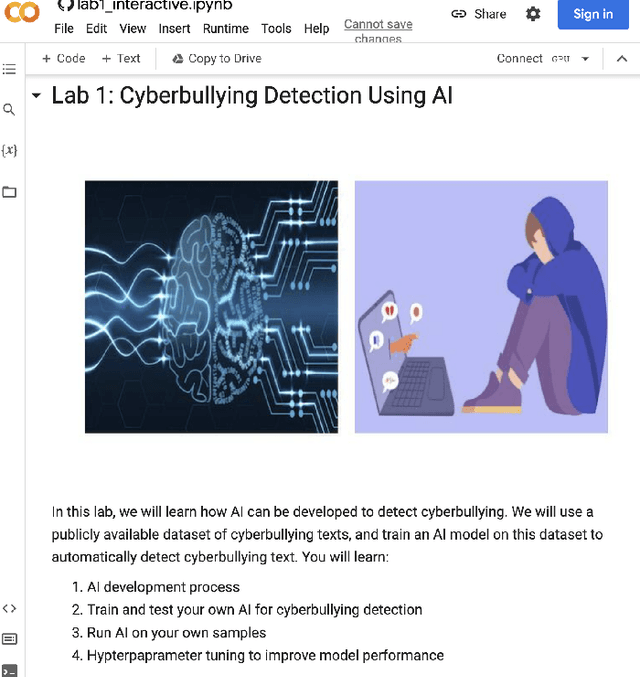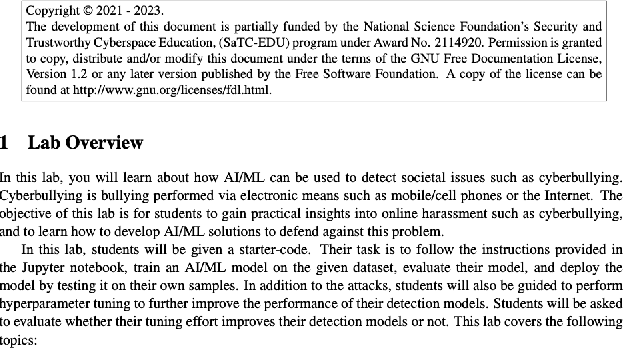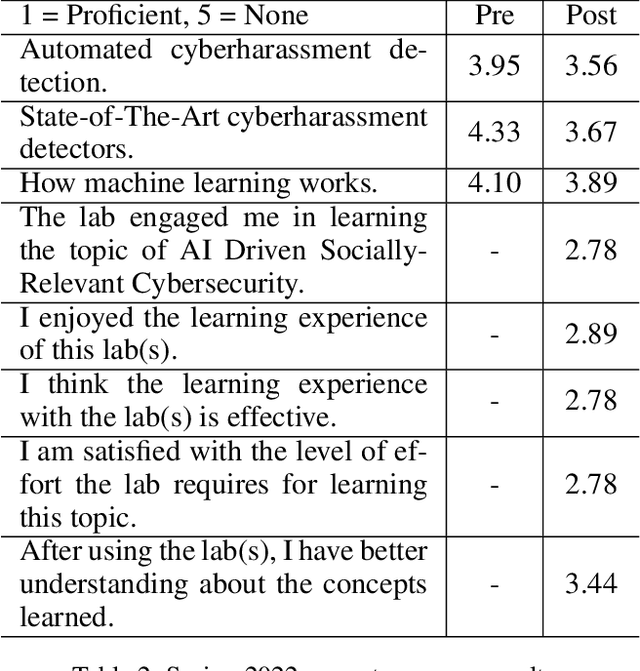Jeannette Wade
AI-Cybersecurity Education Through Designing AI-based Cyberharassment Detection Lab
May 16, 2024



Abstract:Cyberharassment is a critical, socially relevant cybersecurity problem because of the adverse effects it can have on targeted groups or individuals. While progress has been made in understanding cyber-harassment, its detection, attacks on artificial intelligence (AI) based cyberharassment systems, and the social problems in cyberharassment detectors, little has been done in designing experiential learning educational materials that engage students in this emerging social cybersecurity in the era of AI. Experiential learning opportunities are usually provided through capstone projects and engineering design courses in STEM programs such as computer science. While capstone projects are an excellent example of experiential learning, given the interdisciplinary nature of this emerging social cybersecurity problem, it can be challenging to use them to engage non-computing students without prior knowledge of AI. Because of this, we were motivated to develop a hands-on lab platform that provided experiential learning experiences to non-computing students with little or no background knowledge in AI and discussed the lessons learned in developing this lab. In this lab used by social science students at North Carolina A&T State University across two semesters (spring and fall) in 2022, students are given a detailed lab manual and are to complete a set of well-detailed tasks. Through this process, students learn AI concepts and the application of AI for cyberharassment detection. Using pre- and post-surveys, we asked students to rate their knowledge or skills in AI and their understanding of the concepts learned. The results revealed that the students moderately understood the concepts of AI and cyberharassment.
 Add to Chrome
Add to Chrome Add to Firefox
Add to Firefox Add to Edge
Add to Edge